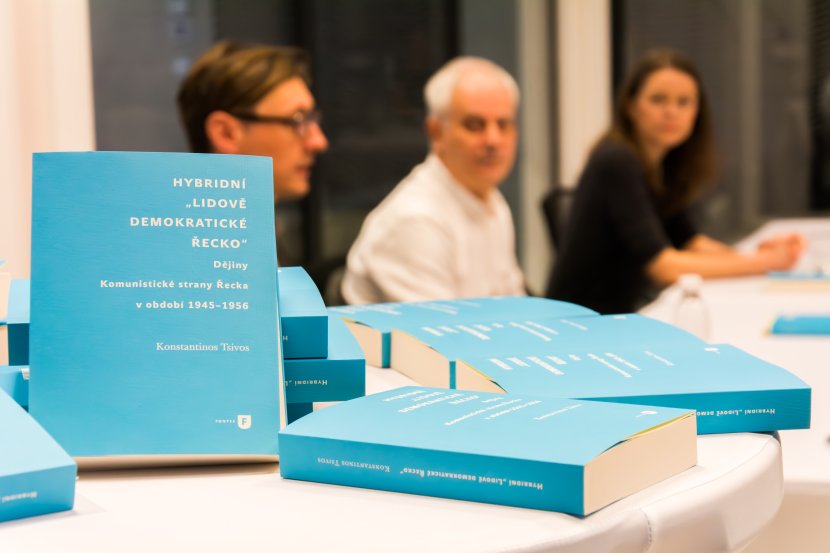The author of the book is Konstantinos Tsivos, PhD, a former Greek journalist who currently works as a historian and researcher at the Institute of Greek and Latin Studies, Faculty of Arts, Charles University in Prague. The book deals with the fate of about 80,000 Greek citizens who were forced to leave their country after the communist revolution was suppressed. "These people found asylum in various, then socialist countries, where they formed numerous communities and with them an imaginary state. That is why the publication is entitled Hybrid 'People's Democratic Greece'," Konstantinos Tsivos explains.
In the book, the author describes the most difficult period of this history, which begins in 1948 and ends in 1956, when the second largest community of Greek emigrants settled in Czechoslovakia. The immigrants formed compact communities mainly in northern Moravia and later dispersed throughout the country. "In Beroun, for example, the local community numbered around 150 people," the historian continues.
The book is the author's habilitation thesis, and in addition to interesting historical facts, readers will certainly be interested in the stories of ordinary people. Those in Czechoslovakia had to overcome not only the language barrier, but also the obstacles in the form of the organisation and operation of the then totalitarian state. Moreover, as the author reveals, the Czech reader will have the opportunity to follow and compare the narrative of Greek communism with that of Czechoslovakia.
"A lot of the data collected comes from interviews we conducted with several dozen descendants who are second-generation emigrants. While the book is not a defense of the totalitarian regime, it points out that the 1950s were a very harsh and perverse time. However, it should be added that the Greek Communist Party played a significant role in the period of anti-fascist resistance and gained many sympathizers as a result. Therefore, if democratic elections had been held after the Second World War, I believe it is very likely that the Communists would have won, just as they did in Czechoslovakia in 1946," says the author.
In the work, which was three years in the making, Konstantinos Tsivos also discusses what the country would have been like if such a scenario had come true. If Greece had experienced a transformation into a people's democratic state in a situation where it would not have received so much support from the Western powers, especially the UK and the US.
The christening was attended by linguist Mgr. Bc. Martina Vaníková, Ph.D., who worked in language proofreading, and PhDr. Ondřej Vojtěchovský, Ph.D., both from the Faculty of Arts of Charles University. Together with other guests, the event was also attended by the owner of the medical holding AKESO Ing. Sotirios Zavalianis.














